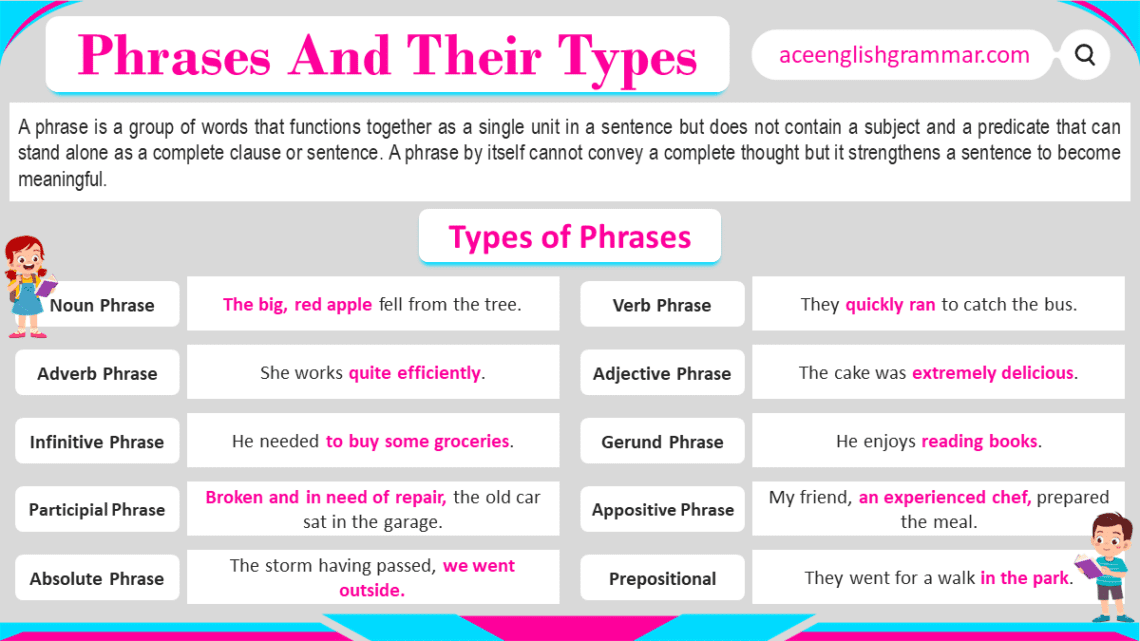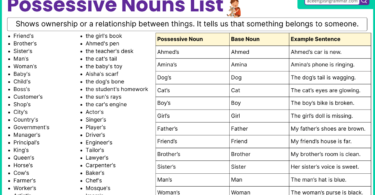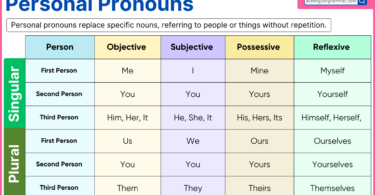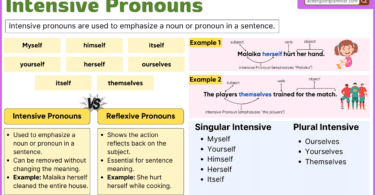When we speak or write, we use words to convey our thoughts and ideas. However, words alone may not always be enough to express our full message. This is where phrases come into play. Phrases are essential components of English grammar that help us to communicate more effectively. They come in various types, each serving different purposes in sentence construction. In this article, we will explore what a phrase is, various types of phrases, and how they are used in a sentence with examples. So let’s get started!
Table of Contents
What is a Phrase?
A phrase is a group of words that functions together as a single unit in a sentence but does not contain a subject and a predicate that can stand alone as a complete clause or sentence. It often acts as a modifier in a sentence, providing additional information about a noun or verb. A phrase by itself cannot convey a complete thought but it strengthens a sentence to become meaningful. There are different types of phrases, including noun phrases, verb phrases, adjective phrases, adverb phrases, and prepositional phrases. For example:
- The big, red apple fell from the tree.
In this sentence, “The big, red apple” is a noun phrase because it consists of a noun (“apple”) and modifiers (“The,” “big,” and “red”) that provide more information about the noun. However, it cannot stand alone as a complete sentence because it lacks a verb and a complete thought.
Types of Phrases
Phrases can be classified into various types based on their structure and function. Here are some common types of phrases with example sentences.
Noun Phrase:
A noun phrase functions as a noun in a sentence. It consists of a noun and words that modify or describe the noun.
Examples:
- The black cat is sitting on the windowsill.
- My favorite book, a classic novel, is on the shelf.
Verb Phrase:
A verb phrase contains a verb and its related words, such as auxiliary verbs (helping verbs) and adverbs that describe the action.
Examples:
- She is reading a book.
- They quickly ran to catch the bus.
Adjective Phrases:
An adjective phrase functions as an adjective, modifying a noun or pronoun. It consists of an adjective and any words that modify it.
Examples:
- The cake was extremely delicious.
- He is very talented in playing the guitar.
Adverbial Phrase:
An adverbial phrase functions as an adverb, modifying a verb, adjective, or adverb. It consists of an adverb and any words that modify it.
Examples:
- She works quite efficiently.
- He drove quite recklessly.
Prepositional Phrase:
A prepositional phrase begins with a preposition and includes an object of the preposition, which can be a noun or pronoun.
Examples:
- The book is on the table.
- They went for a walk in the park.
Infinitive Phrase:
An infinitive phrase is formed with an infinitive verb (to + verb) and may include objects or modifiers.
Examples:
- She wanted to learn French.
- He needed to buy some groceries.
Gerund Phrase:
A gerund phrase is formed with a gerund (an -ing form of a verb) and may include objects or modifiers.
Examples:
- Swimming in the ocean is her favorite activity.
- He enjoys reading books.
Participial Phrase:
A participial phrase contains a participle (often ending in -ing or -ed) and any associated words.
Examples:
- The dog, excited and wagging its tail, greeted us.
- Broken and in need of repair, the old car sat in the garage.
Appositive Phrase:
An appositive phrase renames or explains a noun and is usually set off by commas.
Examples:
- My friend, an experienced chef, prepared the meal.
- The city of Paris, the capital of France, is famous for its landmarks.
Absolute Phrase:
An absolute phrase consists of a noun and a participle (or adjective) and provides additional information about the rest of the sentence.
Examples:
- The storm having passed, we went outside.
- His work was completed, and he left the office.
Phrases vs Clauses
Phrases and clauses are essential components of sentences but differ in their structure and function. A phrase is a group of words that lacks a subject and a verb, serving as a single unit within a sentence. In contrast, a clause contains a subject and a verb, functioning as a complete thought or sentence on its own. Clauses can be independent (standalone) or dependent (incomplete and relying on an independent clause). While phrases add description and detail to a sentence, clauses carry complete meaning and are the building blocks of sentences.
- A red apple (phrase)
- She ate the apple. (clause)
Phrases Rules:
Here are some basic rules of phrases:
- Phrases are groups of words.
- They do not have a complete subject and verb.
- Phrases serve as modifiers or noun/verb complements.
- They enhance sentence description.
- Place phrases appropriately in a sentence.
- Prepositional phrase include a preposition and an object.
- Gerund phrase use verbs in -ing form and act as nouns.
- Maintain clarity and relevance when using phrases in sentences.
Examples of phrases
- The big, red apple fell from the tree. (Adjective Phrase)
- She sings with great enthusiasm. (Adverb Phrase)
- We went to the park after dinner. (Prepositional Phrase)
- Swimming in the ocean is his favorite hobby. (Gerund Phrase)
- He plans to visit Paris next summer. (Infinitive Phrase)
- In the morning, we’ll start our journey. (Prepositional Phrase)
- He ate the pizza with great delight. (Adverb Phrase)
- I enjoy reading mystery novels. (Gerund Phrase)
- She wants to learn French. (Infinitive Phrase)
- Taken by surprise, she screamed. (Participial Phrase)
- They traveled by train. (Prepositional Phrase)
- The movie was quite entertaining. (Adjective Phrase)
- The children played in the park. (Prepositional Phrase)
- Eating ice cream is a delicious treat. (Gerund Phrase)
- We need to finish the project by Friday. (Infinitive Phrase)
- Running late, he missed the bus. (Participial Phrase)
- She arrived after the meeting ended. (Prepositional Phrase)
- The storm was extremely powerful. (Adjective Phrase)
- He hopes to become a doctor one day. (Infinitive Phrase)
- My neighbor, a retired teacher, is very kind. (Appositive Phrase)
FAQs
Q1: What is a phrase?
A phrase is a group of words that functions as a unit within a sentence but does not have both a subject and a verb to form a complete thought.
Q2: What is the difference between a phrase and a clause?
A phrase lacks both a subject and a verb, while a clause contains both a subject and a verb, making it a complete thought or sentence.
Q3: How are phrases used in sentences?
Phrases are used to provide additional information, modify nouns or verbs, and enhance the description and clarity of sentences.
Q4: What are the common types of phrases?
Common types of phrases include:
- Noun phrase
- Verb phrase
- Adjective phrase
- Adverb phrase
- Prepositional phrase
- Participial phrase
- Gerund phrase
- Infinitive phrase
- Appositive phrase
- Absolute phrase
Q5: What is the purpose of adjective phrases and adverb phrases?
Adjective phrases describe or modify nouns, while adverb phrases modify verbs, adjectives, or other adverbs to provide more detail and context.
Q6: Do phrases have specific punctuation rules?
Some phrases, like appositive phrase, is often set off by commas. Punctuation depends on the specific type and role of the phrase in a sentence.
Q7: Can phrases be used in both spoken and written language?
Yes, phrases are used in both spoken and written language to convey meaning and add depth to communication.
Q8: Give some examples of phrases.
Here are a few examples:
- Noun Phrase: “The tall building”
- Verb Phrase: “Has been waiting”
- Adjective Phrase: “Very friendly”
- Adverb Phrase: “Quite slowly”
- Prepositional Phrase: “Under the table”





Leave a Comment